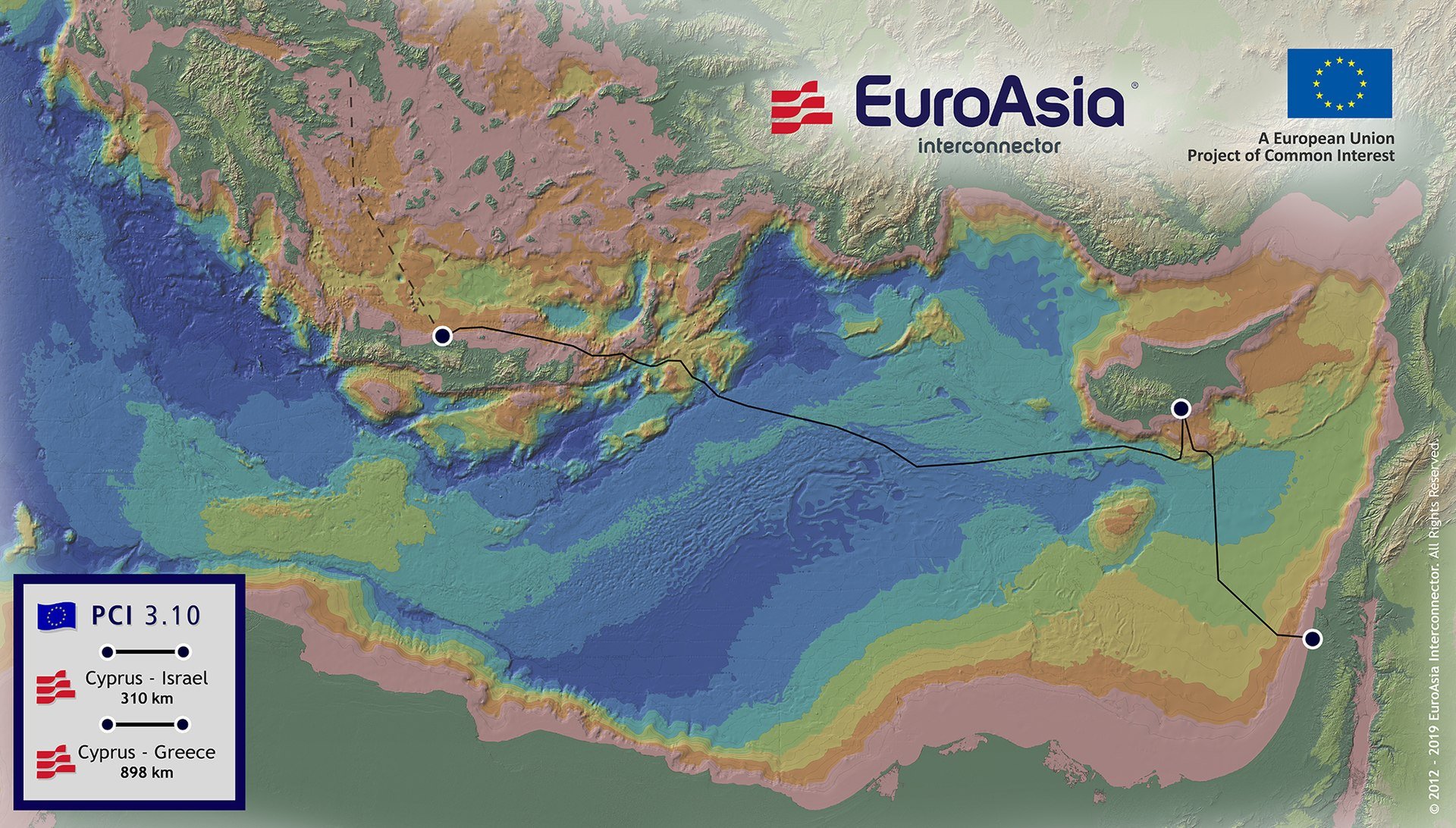The big decision about the Great Sea Interconnector (GSI) is expected to be taken today when all the stakeholders meet at the presidential palace to discuss details and address the many concerns of the government about the project. That everything could be resolved – all concerns, doubts and questions – at a broad meeting seems optimistic, considering we are talking about a project which, according to initial estimates, will cost €1.9 billion; about a third of this will be paid by the EU.
The approval of the project was supposed to have been taken at last Wednesday’s cabinet meeting, but it was put back to Thursday and then to this week as questions were asked about its viability and whether the government had properly studied the financial risks involved. Unprecedented pressure has been put on the government to give the go-ahead by the Greek government, the EU and the project promoter Admie, Greece’s independent Power Transmission Operator. On Friday even US ambassador Julie Fisher entered the fray, warning that if Cyprus did not take this opportunity it would be left behind with regard to electricity connection.
Cyprus’ electricity connection with Crete and thus the rest of the EU is of strategic importance for its energy security and will also enable it to significantly reduce its carbon footprint. Nobody doubts the importance of ending Cyprus’ energy isolation, and everyone recognises that if the project goes smoothly there will be significant benefits for the island, including a reduction in the price of electricity. At the same time, however, there are justified concerns about the project and fears the government has not thoroughly studied all aspects and the risks involved. These concerns are understandable given the superficiality with which the authorities have approached other large projects, the Vasiliko LNG terminal fiasco being the most recent example.
Only a couple of weeks ago, the finance ministry permanent secretary said inadequate information had been provided regarding the GSI so it was difficult to express an informed opinion. Has all the information necessary to carry out an in-depth evaluation of the project’s finances and prospects been provided to the finance ministry since then? This is of vital importance considering one of the conditions set by Admie was that if the project fell through Cyprus would have to cover all the costs incurred. Is this standard practice in such agreements? Perhaps we are uninformed, but on the surface it seems that Admie is not taking any business risk – if the project fails Cyprus will cover the cost but if it succeeds Admie is guaranteed an 8.3 per cent return on its investment for 17 years.
This is the problem surrounding the GSI – lack of information but an expectation to agree to the project without it. Perhaps the problem has been addressed in the meantime and all the necessary information for the government to make a decision that is based on real data rather than blind faith has been provided. Greece’s Prime Minister Kyriakos Mitsotakis said on Sunday that if the project’s financial viability was ensured, the project would go ahead. How it will be ensured should be comprehensively answered at today’s meeting before the government gives its go-ahead.







Click here to change your cookie preferences